
Italy’s newest theme park? Venice
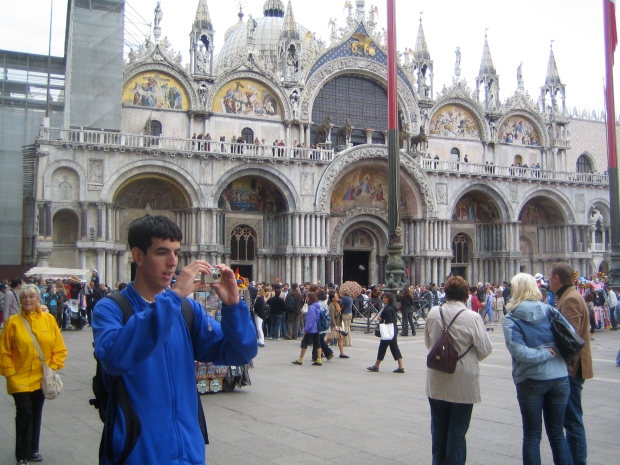
The restaurant had taken advantage of every inch of its tiny corner-of-the-block space. Tables were crammed into the corners and smashed against the front windows, leaving barely enough space between them to allow waiters to pass. Across from our tiny sitting area, pushed uncomfortably underneath the stairs to the second floor bathrooms, was a huge case of chilled five-dollar water bottles. Customers’ expressions revealed feelings of worry, harriedness, stress and slight unease, with the exception of two couples in fluorescent Hawaiian shirts laughing and boisterously singing the chorus of “Hotel California” with the waiter.
No, this wasn’t Disneyland. This was Venice, Italy.
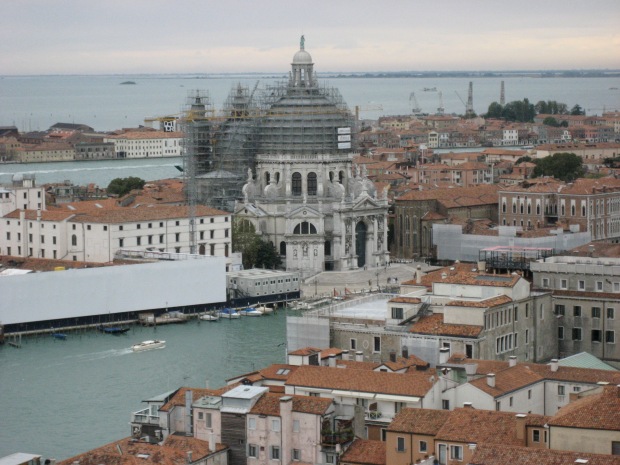
Or was it? I doubted many other Italian cities considered English their primary language and attracted about 20 times more annual visitors than permanent residents. Maybe this was Disneyland after all.
Though the claustrophobia of the restaurant did nothing to calm my nerves, it was at least an escape from the hordes of tourists and pigeons only a block away in St. Mark’s Square, one of the most visited spots in the city.
When you’ve only got a day to spend in Venice, as my friends and I did on this rainy Sunday, seeing the square is a visitor must—especially when the visitor in question, like me, has gazed at photos of the cathedral, the clock tower and the Doge’s Palace in wonder for years. I had dreamed about visiting Venice, particularly this venerated square where so many scholars and poets before me had passed through, since eighth grade, when I sang in a play called “Viva Vivaldi!” which celebrated the life of the famous Venetian composer and his lovely home turf.
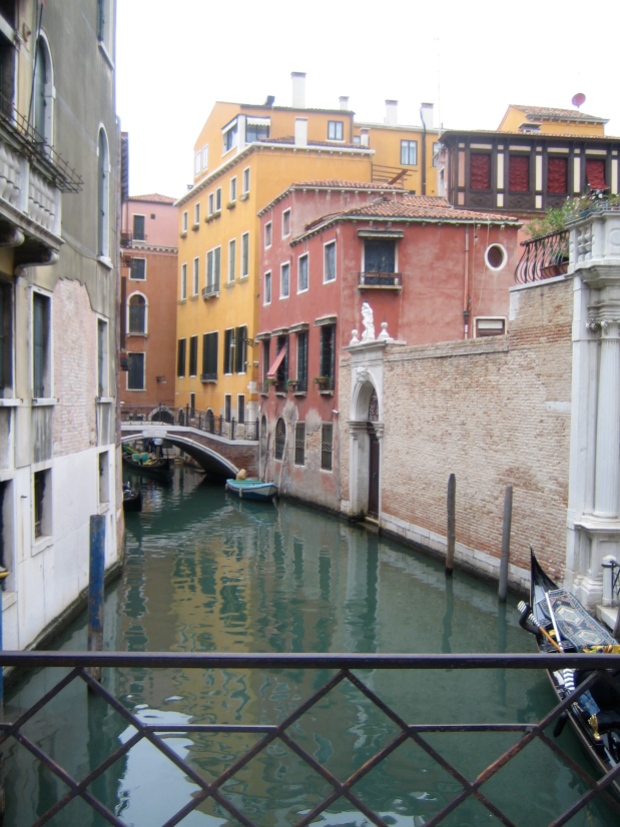
With all my senses, I routinely imagined the red-roofed city’s atmosphere: the tiny, romantic canals lined with orange and yellow houses, clothes strung between the crumbling balconies; wafts of warm pasta and pesto sauces lingering in the air; a cool, salty breeze from the Grand Canal.When I finally arrived at the square in person, though, only two of my senses awakened: sight and smell. The former spotted dark, ominous clouds threatening to pour rain down on us, and the latter couldn’t ignore the repugnant rotten-egg smell emanating from the canal 200 feet away. To make matters worse, a large construction banner covered a ring of scaffolding around the red-brick bell tower, obscuring the full view of the square and making it even more difficult for the huge crowds to maneuver around each other.
Was Venice always like this, I wondered? What happened to “bella Venezia”, the city of Vivaldi, the capital of romance?
Here’s what happened: the Disneyland effect.
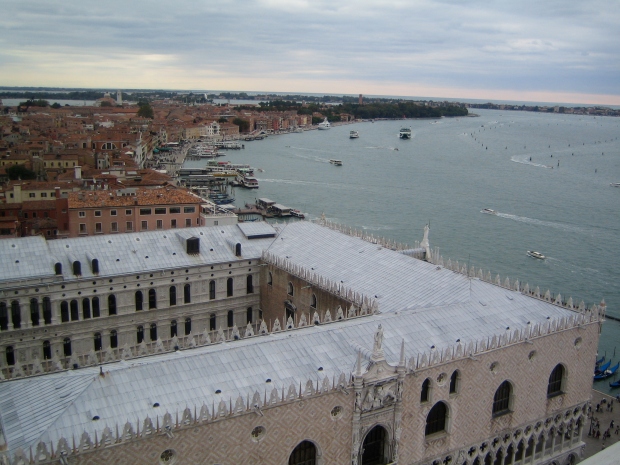
In June, city officials estimated that somewhere between 18 and 19 million people visit Venice every year. This statistic looks astronomical even by itself, but juxtaposed with the number of residents within city limits—62,000, according to a 2006 census—it seems downright insane. Actually, it closely resembles tourist figures at Disneyland. In 2007, nearly 17 million people visited Disneyland, which means in the high season visitors staying in hotels could easily have outnumbered the fewer than 350,000 Anaheim, Calif. Residents.
Venice wasn’t always so overrun with non-Italians, though. Fifty years ago, its population was twice that of today, and according to an article in the New York Times, the city saw half the amount of current annual tourists 20 years ago. No wonder my high school Spanish teacher, who visited Venice in the 1960s, reported a very different experience from mine: she called the canals and the square “charming” and said most people there were Italian, not foreign.
Venice has changed, and mostly for the worse. In 1960, I could have gotten off the train at Santa Lucia station and said, “What do I want to see first?” When my friends and I got off the train, we spent 10 minutes elbowing our way through the crowds to reach the station and my friend Mark aptly said, “So basically what it comes down to is, where do we want to wait in line first?”
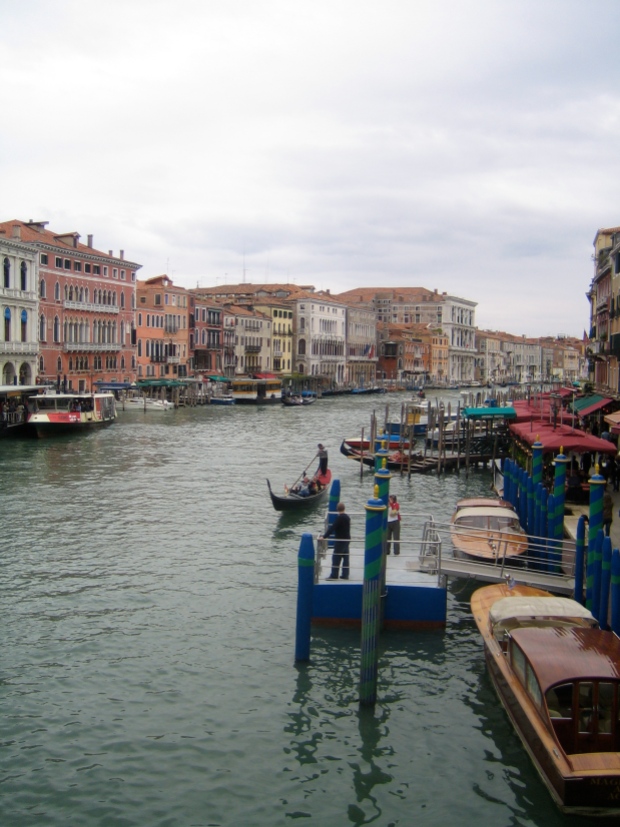
We chose the hundred-person-long line to the baggage storage room. Then, we waited in line to buy tickets for the “vaporetti,” or water taxis. Then, we waited in line to get on the taxi. By the time we had waited in line twice more, once to ride the elevator to the top of the bell tower and again to see the unfurnished, musty and dark interior of the Doge’s palace, we were entirely too hungry and tired of crowds to bother with the line that snaked from the cathedral’s wrought iron entrance doors all the way to the edge of the canal.
There were no lines in front of the restaurant. But there was a Venetian waiter there who, when I tried to ask him about life in the lagoon city, drowned out my questions with talk of L.A. and another rousing chorus of “Hotel California”—all because I told him I was from San Francisco.
Clearly, Venice is no longer the cultural destination it once was—the city seems more American than it does Italian—but it is nevertheless home to 62,000 more people than Disneyland. It must, therefore, retain some sort of distinct local spirit, though it may be buried deep in the narrow, windy streets and tiny straits of water a little further from the Grand Canal. I hope to return to Venice in the off season and with a little more time on my hands to veer from the oft-tread path and discover the city as it once was. You’ll probably see me: I’ll be the underdressed American attempting fluid Italian sentences and murmuring under my breath about Disneyland tourist traps.





